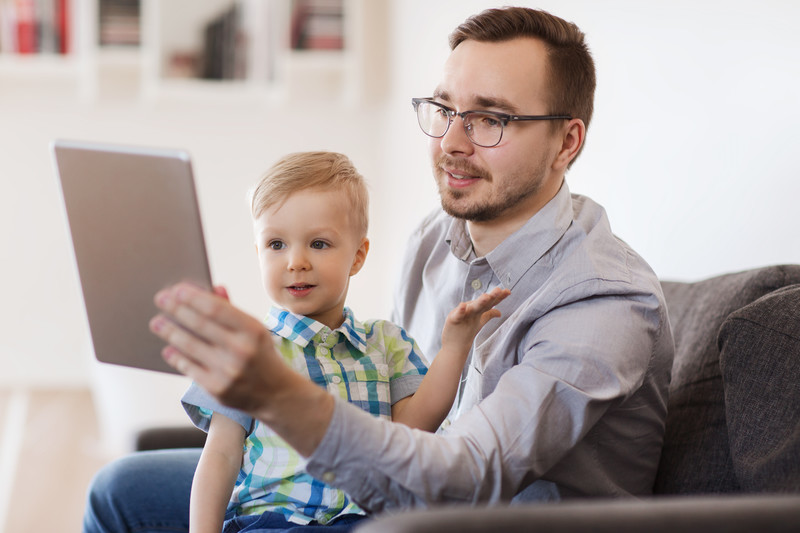
Many separated parents are confused and worried about whether they will be able to see their children during the current coronavirus (COVID-19) lockdown if they are not the parent with whom the children usually live or if they have a co-parenting arrangement.
After initial confusion following instructions that we should stay at home and away from others, the government has provided guidance saying: “Where parents do not live in the same household, children under 18 can be moved between their parents’ homes.” However, some parents are still unsure, and our mediation team receives daily phone calls asking: “What shall I do? Can I still see my children when they don’t live with me?”.
Can my children still spend time at my home during coronavirus lockdown?
Well, the answer is ‘yes’ if it safe to do so, providing no one in either household is showing signs of having the virus.
As is always the case in separation and divorce cases, the welfare of your children is the most important thing and having contact with both parents is known to be hugely beneficial for children of separated parents. You will probably have an arrangement in place regarding how you share care and responsibility for your children – this is likely to include arrangements for holidays etc., and what happens in an emergency. However, COVID-19 is more than an emergency and substantial parts of any agreement might need to be changed. In these worrying times it is important that both parents are as flexible as possible in their approach to the arrangements for children.
If you have come to an agreement about your children through mediation, you will undoubtedly understand that you need to provide for the best interests of your children and your arrangements will take that into account. You are also more likely to be able to talk to each other as parents. This ability to be able to communicate with each other during these very difficult times is vital as you work to preserve normality – as far as is possible – for your children. You may need to make changes that are not part of your agreed arrangements or in a parenting plan. For example, as many of us are now working from home, you might need to make changes to take each other’s circumstances into account, such as which parent your children stay with, for how long, and when they spend time in the care of the other parent. Also, you may need to change arrangements you have already made regarding where the children will spend the Easter or summer holidays. Where changes result in one parent sharing less time with the children, you could offer to make up for it with time spent on video chats, such as Facetime, Skype, WhatsApp, Zoom, or other, or by phone. Try to talk about any concerns about such arrangements and make reassurances that things will go back to normal when restrictions are removed.
What if I don’t think it is safe for my children to visit their other parent?
If you are worried that someone in one household is showing virus signs, talk to the other parent about this and make your arrangements around it, for example, keeping the child in the household where there are no signs until the other household is clear. The current recommended self-isolation period if you have any of the symptoms of coronavirus is seven days. Anyone who lives with a person who has the symptoms of coronavirus must self-isolate for 14 days from the first day they showed the symptoms. You can find out more about self-isolation and get advice from the government here. If your child develops symptoms, they should not travel between both parents’ homes. Equally, if your child is classed as vulnerable and has to self-isolate, it is important to think about their health first and keep them in one place. This may mean that one parent may not have physical contact with the children for many weeks or months, but it does not rule out keeping in contact by video or telephone.
What if I have a child arrangements order?
If you have a child arrangements order in place, you should both try to stick to the terms within it, unless this poses a risk to your children. Again, this may be difficult at present due to your individual situation. You, or your children’s other parent, may be a key worker, for example, and may be asked to work longer than usual, which may mean that different arrangements have to be put in place.

Managing Director
Family Matters
Of course, it could be difficult for you to discuss matters with your children’s other parent if you are distanced from them, but the Family Court has advised that parents should try to work together to make arrangements for their children and that they are free to use their parental responsibility to vary the child arrangements order where necessary (keeping a record of the agreement where possible). Where parents cannot agree about their children’s care, the Family Court says that if one parent is worried that complying with the child arrangements order would contravene public health advice, that parent can exercise their parental responsibility to change the child arrangements order. Further advice is given about this by the Family Court, and you can find that here.
We recognise that the coronavirus lockdown is for three weeks, however, it will likely go on, in some way, for longer. If you wish to discuss how you can use mediation to come to an agreement regarding your children, contact our staff now. We are all working remotely and, will make arrangements for new mediation sessions and MIAMS as soon as we are able.



